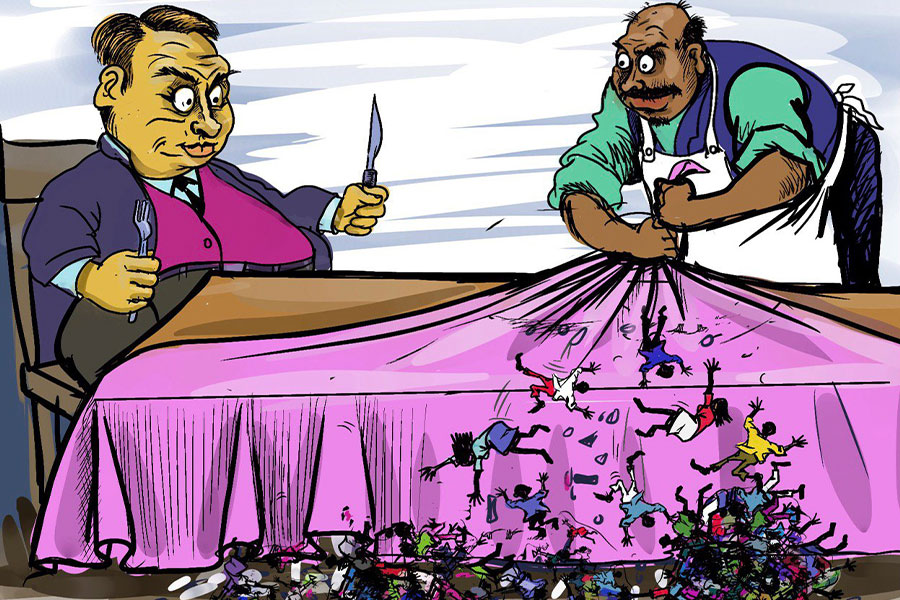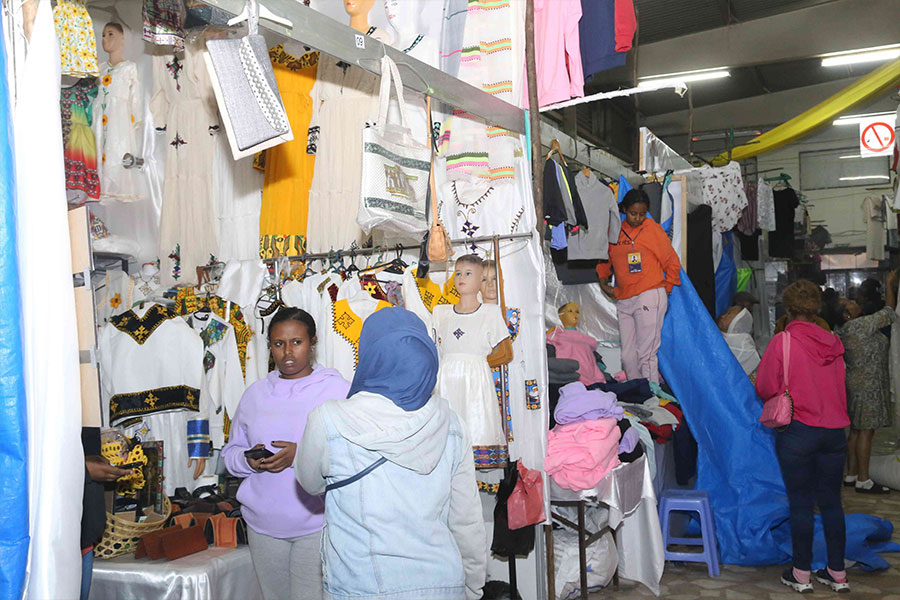
Apr 10 , 2023
Developing countries increasingly worry that the United States (US) will turn its back on the multilateral trade regime. Amid rising geopolitical tensions, policymakers in lower- and middle-income countries fear that a breakdown of that regime could make them hostages to great-power politics, undermining their economic prospects.
Their concerns are not groundless: US trade policies have changed significantly over the past few years. What seemed like a series of haphazard measures under former President Donald Trump – sanctions on Chinese firms, increased tariffs, and the fatal subversion of the World Trade Organization's (WTO) dispute-settlement body – has become a broad, coherent strategy under current President Joe Biden.
This strategy, which aims to reconstitute America's role in the global economy, embodies two imperatives. First, the US now regards China as its main geopolitical rival and views its technological ascendance as a national security threat. As the administration's sweeping restrictions on selling advanced chips and chip-making equipment to Chinese firms show, the US is willing to sacrifice international trade and investment to thwart China's ambitions. Moreover, it expects other countries to do the same.
Second, US policymakers aim to make up for decades of neglecting domestic economic, social, and environmental priorities by focusing on policies that promote resilience, dependable supply chains, good jobs, and a clean-energy transition. The US seems happy to pursue these objectives on its own, even if its actions could adversely affect other countries.
The best example of this is the Inflation Reduction Act, the Biden administration's landmark climate-transition legislation.
Many governments in Europe and elsewhere have been outraged by the 370 billion dollars in clean-energy subsidies included in the IRA, which favour US-based producers. Pascal Lamy, the former head of the WTO, recently called on developing countries to join the European Union in forming a "North-South" coalition without the US to "creating a disadvantage for [the Americans] that would make them change their position."
To be sure, Europe has its own brand of unilateralism, albeit a softer one than America's. The EU's Carbon Border Adjustment Mechanism (CBAM), which aims to maintain high carbon prices within the bloc by imposing duties on carbon-intensive imports such as steel and aluminum, is meant to placate European firms that would otherwise find themselves at a competitive disadvantage. But it also makes it harder for developing countries such as India, Egypt, and Mozambique to access European markets.
Developing countries have plenty to worry about. As the US and Europe attempt to isolate China and craft policies supporting their new domestic agendas, they are unlikely to have poorer economies' interests in mind. For small lower-income countries, multilateralism remains the only safeguard against the solipsism of great powers.
But developing countries would do well to recognize that legitimate concerns drive these unilateral policies and are often aimed at meeting global needs. Climate change, for example, is clearly an existential threat to humanity. If US and European policies accelerate the green transition, poorer countries will benefit, too. Instead of condemning these policies, lower- and middle-income countries should seek transfers and financing that would enable them to follow suit.
For example, they should demand that European countries channel CBAM revenues to developing-country exporters to support these firms' investment in greener technologies.
More broadly, developing countries must remember that their economic prospects are determined first and foremost by their own policies. Short of a 1930s-style worldwide plunge into protectionism, they will likely not lose access to Western markets. Moreover, export-oriented countries such as South Korea and Taiwan engineered their growth miracles during the 1960s and 1970s, when developed countries were far more protectionist than they are now or likely to be in the foreseeable future.
It is also true that the export-oriented industrialization model has run out of steam for reasons that have little to do with the Global North's protectionist policies. Because today's manufacturing technologies are so skill- and capital-intensive, it is difficult for latecomers to mimic the success of East Asian tigers (I call this phenomenon 'premature de-industrialisation). Future development models would have to rely on service industries and small and medium-sized enterprises rather than on industrial exports to build a thriving middle class.
Developed countries' renewed focus on building resilient, equitable domestic economies could also benefit the global economy. Cohesive societies are far more likely to support openness to international trade and investment than those roiled by the inegalitarian forces of hyper-globalization. As many studies have shown, disappearing jobs and regional economic decline can often engender ethno-nationalist politics.
In a 2019 "letter to the next generation," Christian Lagarde – then Managing Director of the International Monetary Fund and the current President of the European Central Bank – lamented the rise of unilateralism and emphasized the benefits of the post-1945 bargain.
"Bretton Woods launched a new era of global economic cooperation, in which countries helped themselves by helping each other," she wrote.
But the opposite is also true: any successful global regime, including the Bretton Woods system, must rely on the idea that countries could help each other by helping themselves.
PUBLISHED ON
Apr 10,2023 [ VOL
24 , NO
1197]

View From Arada | Feb 03,2024

Sunday with Eden | Nov 30,2024

Radar | Sep 10,2022

Editorial | May 31,2025

View From Arada | Jun 14,2025

Agenda | Sep 10,2022

Radar | May 27,2023

Fortune News | Apr 06,2019

Radar | Mar 09,2019

Fortune News | Jan 25,2020

My Opinion | 131658 Views | Aug 14,2021

My Opinion | 128020 Views | Aug 21,2021

My Opinion | 125983 Views | Sep 10,2021

My Opinion | 123607 Views | Aug 07,2021

Dec 22 , 2024 . By TIZITA SHEWAFERAW
Charged with transforming colossal state-owned enterprises into modern and competitiv...

Aug 18 , 2024 . By AKSAH ITALO
Although predictable Yonas Zerihun's job in the ride-hailing service is not immune to...

Jul 28 , 2024 . By TIZITA SHEWAFERAW
Unhabitual, perhaps too many, Samuel Gebreyohannes, 38, used to occasionally enjoy a couple of beers at breakfast. However, he recently swit...

Jul 13 , 2024 . By AKSAH ITALO
Investors who rely on tractors, trucks, and field vehicles for commuting, transporting commodities, and f...

Jun 28 , 2025
Meseret Damtie, the assertive auditor general, has never been shy about naming names...

Jun 21 , 2025
A well-worn adage says, “Budget is not destiny, but it is direction.” Examining t...

Jun 14 , 2025
Yet again, the Horn of Africa is bracing for trouble. A region already frayed by wars...

Jun 7 , 2025
Few promises shine brighter in Addis Abeba than the pledge of a roof for every family...

Jun 29 , 2025
Addis Abeba's first rains have coincided with a sweeping rise in private school tuition, prompting the city's education...

Jun 29 , 2025 . By BEZAWIT HULUAGER
Central Bank Governor Mamo Mihretu claimed a bold reconfiguration of monetary policy...

Jun 29 , 2025 . By BEZAWIT HULUAGER
The federal government is betting on a sweeping overhaul of the driver licensing regi...

Jun 29 , 2025 . By NAHOM AYELE
Gadaa Bank has listed 1.2 million shares on the Ethiopian Securities Exchange (ESX),...